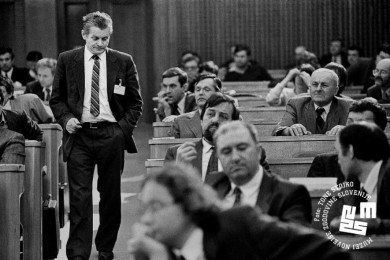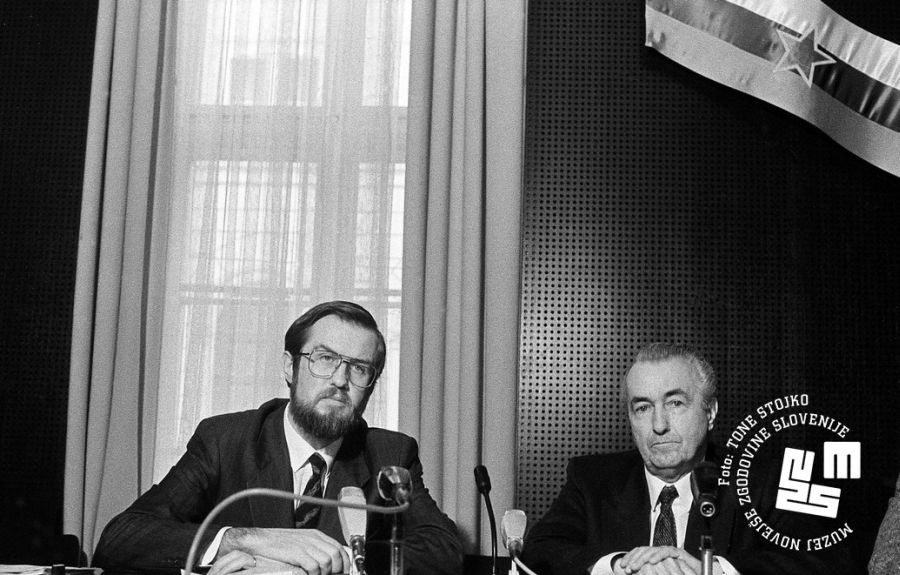18. 1. 1991: Marković meets Peterle or each to their own
Darijan Košir wrote a commentary in the Delo newspaper with the somewhat teasing title, "Boys, this means war!". In the article, he made fun of the initial American euphoria and confidence in a swift victory, and predicted arduous fighting, "This war does not involve a confrontation that would last a day or two or even four months as was anticipated by oil experts." In the end, nevertheless, he was proven wrong.
Here at home, there was not much time to look towards the Middle East. The post-plebiscite fever brought Ante Marković, President of the Federal Executive Council, who was visiting the republican governments, to Ljubljana. The meeting with the Slovenian Executive Council and its President, Lojze Peterle, was an opportunity to check the positions of the sinking federation and its most rebellious republic almost one month after the Slovenian plebiscite. Media observers guessed correctly that their positions remained quite far apart.
Peterle explained to Marković that Slovenia believed that the Yugoslav federation was dissolving, and there remained only the necessity of reaching a unanimous agreement on how to conclude the project while preventing an explosion. Based on the memorandum of ten days previously and the Serbian intrusion into the Yugoslav monetary system, Peterle offered minimum temporary financing of the federal bodies and the payment of a participation fee in exchange for the maximum transfer of federal powers to the republican level prior to the final dissolution.
It could be deduced from Marković’s statements at the time that the federal authorities were trying to buy time in January. He did not completely exclude the possibility of adopting the Slovenian memorandum and its conditions, but he said that "for now it is impossible to adopt it and that its contents can be discussed only in connection with further negotiations between the republics about a new government agreement." The Večer reporters did not overlook the fact that Marković no longer wore his characteristic smile during the Ljubljana meeting. The Federal Prime Minister also complained about the general blocking of his reform efforts, to which he apparently still attributed healing powers. Publicly, at least, he refrained from pointing the finger at Serbia for the intrusion into the monetary system, instead sharing the blame for those problems equally between all the republics. According to Delo, he suggested that the Federal Government supposedly had the "greatest difficulties with the inspection services of the Social Accounting Service as these are linked with their local authorities. This is also the main reason that the Government could not enforce a suitable monetary policy and that the intrusion into the monetary system occurred."
The meeting between the Serbian President, Slobodan Milošević, and his Montenegrin counterpart, Momir Bulatović, taking place on the same day in Belgrade, was much more harmonious than the talks between Marković and Peterle. Although they both advocated a democratic and peaceful solution to open issues, they were resolute in their mutual desire for Serbia and Montenegro "to preserve Yugoslavia as a unitary federal state of equal nations." But more explosive was the next item on the agenda, as the discussion partners went on to say that changes to the borders between the republics must occur if Yugoslavia failed to remain a federation as both presidents believed that "the current administrative borders between the Yugoslav republics cannot be accepted as state borders."
The slow dissolution of Yugoslavia was least evident in sports. League competitions continued with no interruptions. The Medveščak Zagreb ice hockey team, which had proved invincible for Slovenian sides in previous seasons, prevailed again on 18 January 1991. They beat Olimpija Ljubljana 7-0 and temporarily gained first place in the championship table. Jesenice, in a far less spectacular match at their Podmežakla Hall home ground, won 4-3 against the bottom ranking Serbian side Crvena zvezda.
Author: Aleš Maver
Similar articles
-
Triumphant Year of 1991
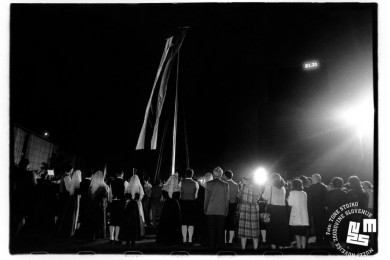
-
9. 5. 1991: Facilitated processing of independence laws
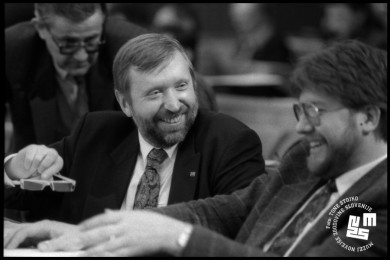
-
2. 3. 1991: Slovenians abroad and around the world in concern for Slovenia
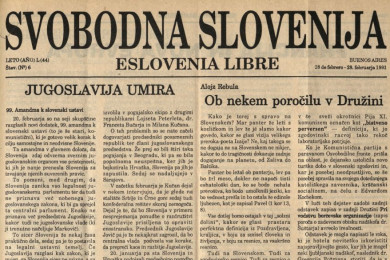
-
1. 3. 1991: Franco Juri against the transfer of conscripts to the Slovenian Territorial Defence
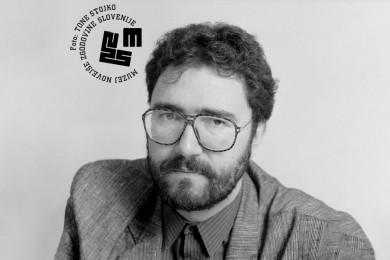
-
28. 2. 1991: Prepared defence and protection act proposal to ensure a plebiscite decision
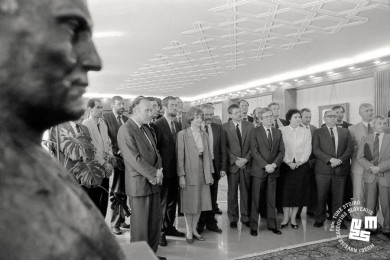
-
27. 2. 1991: The persistently looming red star
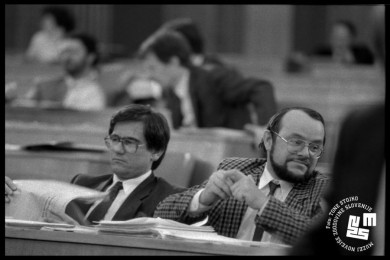
-
26. 2. 1991: A hopeless search for the Yugoslav modus vivendi
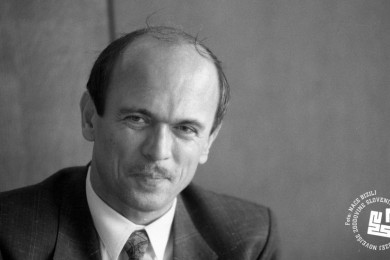
-
16. 2. 1991: Ciril Ribičič on the red star and reservations about the dissolution of Yugoslavia
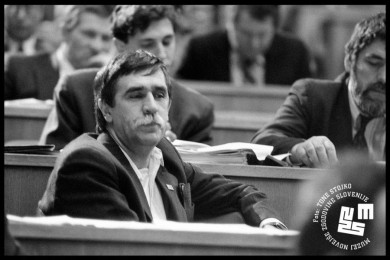
-
15. 2. 1991: Two thirds of respondents have faith in an independent Slovenia
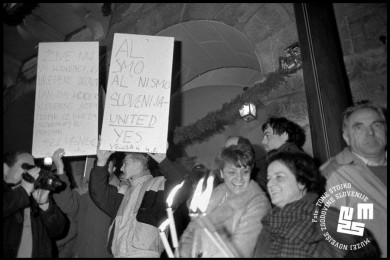
-
27. 1. 1991: Between a relaxation of tensions at home and a deteriorating situation in the Middle East
